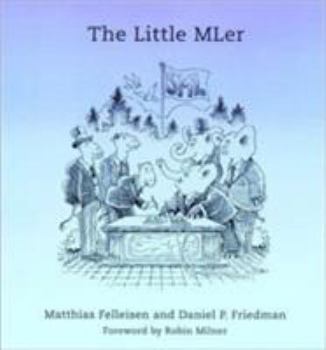The Little Mler
Over the past few years, ML has emerged as one of the most important members of the family of programming languages. Many professors in the United States and other countries use ML to teach courses on the principles of programming and on programming languages. In addition, ML has emerged as a natural language for software engineering courses because it provides the most sophisticated and expressive module system currently available.Felleisen and Friedman are well known for gently introducing readers to difficult ideas. The Little MLer is an introduction to thinking about programming and the ML programming language. The authors introduce those new to programming, as well as those experienced in other programming languages, to the principles of types, computation, and program construction. Most important, they help the reader to think recursively with types about programs.






